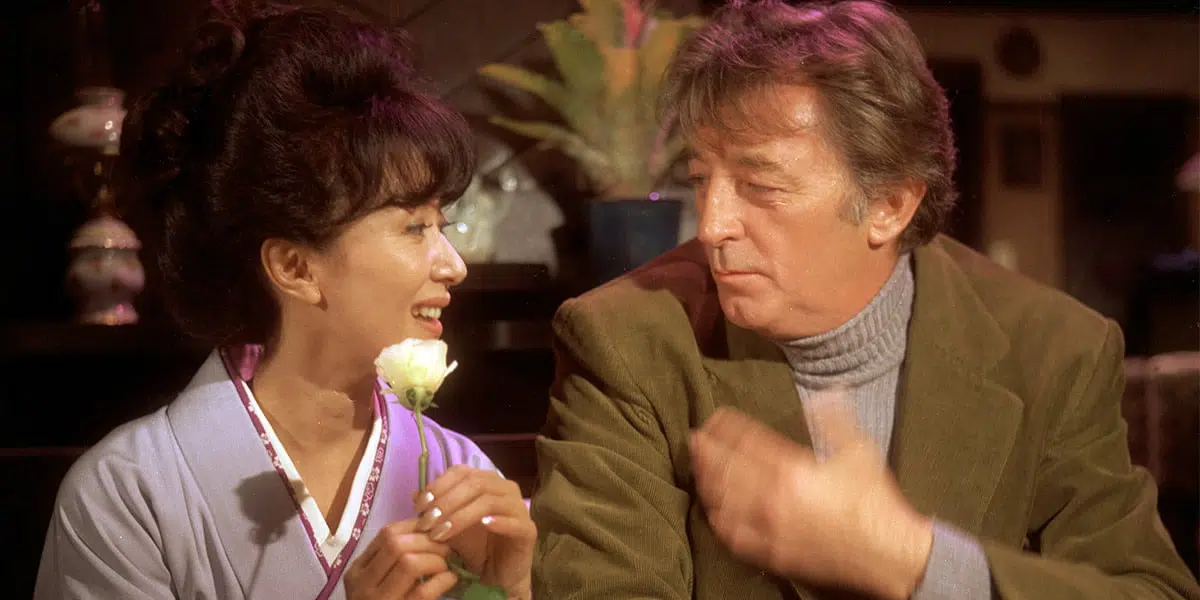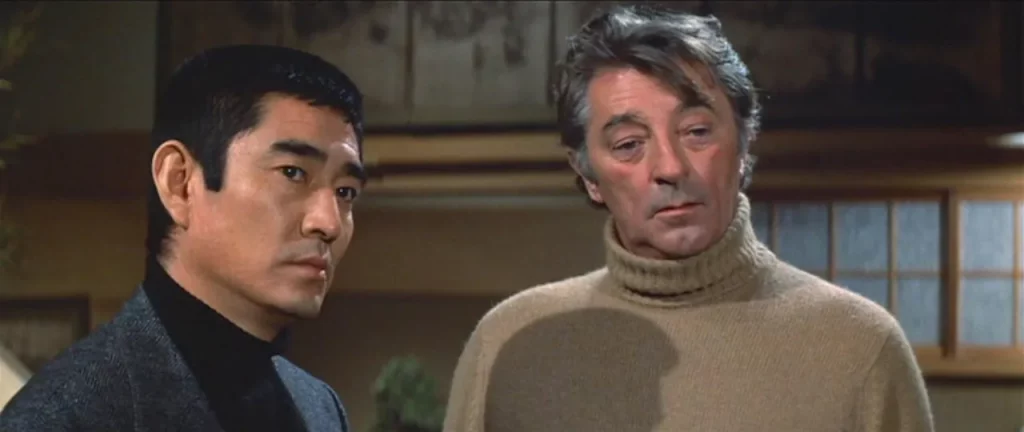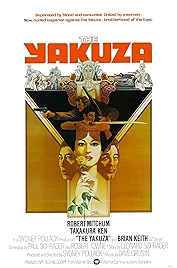Robert Mitchum in a martial arts movie? That was Warner Bros’ crazy idea back in the early 1970s. Riding the massive success of their collaboration with Bruce Lee and the vogue for all things chop-socky, the next logical step was never to pack a paunchy and ageing Mitchum off to Japan but Warners went ahead and did it anyway. In 1974 came the verdict – The Yakuza was a massive commercial flop. Time hasn’t done much to restore its reputation, though there are great things in it, and any opportunity to watch Mitchum is usually worth taking.
After 1973’s monster hit Enter the Dragon, the race was on to get more of the same onto the screens. And so it came to pass that the first screenplay by film critic Paul Schrader – working off a story by his brother Leonard, who lived in Japan at the time – became a hot property. It sold for big bucks, and it looked like Robert Aldrich was going to direct the adaptation, with Lee Marvin starring as the private eye running into trouble with the yakuza in Japan after going there to rescue a friend’s kidnapped daughter.
Marvin got replaced by Mitchum, who forced Aldrich (who’d always thought of Mitchum as a friend) off the production. In came Sydney Pollack, and along with him came Robert Towne, to do rewrites of Schrader’s screenplay.
If you were compiling a list of great US screenwriters of the 1970s, both Schrader and Towne would be on it (Schrader for Taxi Driver, if nothing else, Towne for Chinatown ditto) but neither succeeds in breathing life into The Yakuza. It’s a torpid thing, heavy with a repeated discussion about honour (or “giri”) and the codes of the yakuza, and light on actual action.
From the title credits you’d guess something James Bond-ish was about to play out. They’re lush and sinuous (Enter the Dragon also has a Bond fascination) but once the curtain goes up, introducing Harry Kilmer (Mitchum) as a guy tending his plants, we seem to be more in the territory of Robert Altman’s The Long Goodbye, with Mitchum playing a similar sort of private eye to Elliott Gould’s – one who isn’t quite sure about all the white knight stuff.
Once in Japan, Harry Kilmer rekindles his relationship with an old flame (Keiko Kishi) and uses her as a way of re-activating former yakuza man Ken Tanaka (Ken Takakura, often called the Japanese Clint Eastwood, on account of his impassiveness) and inserting himself into gangland affairs.
Then around 56 years old, Mitchum looks great, in a jowly, gone-to-seed kind of way, and is dressed throughout in superbly tailored clothes that make him look even better, but there’s no way in hell he’s going to be fighting and crying “aiieee”, Bruce Lee style, which is exactly what Takakura is there for.
A languid air hangs over the entire film. Mitchum’s bulk, the incredibly rich Technicolor cinematography (by Kôzô Okazaki) – so much purple! – and Dave Grusin’s wistful soundtrack mingling jazz themes, Japanese elements and film noir thrillerism. It’s all impressive but it sits ill against action that is too-often badly choreographed, really not helped when a chop-socky editing style, cutting into the meat, is applied, as it is in a central action sequences halfway through.
Mitchum is magnetic all the way through, even though at times he can barely be bothered acting (Pollack would complain), but his static style works best in films with a strong story and a forward dynamic. The Yakuza’s story is muddled – the kidnapped girl, for instance, is rescued almost immediately and is never seen again – and it frequently stops to give the audience lectures on honour, and is still introducing new plot twists and people as it’s winding towards a finish.
A mood piece, then, rather than the next Enter the Dragon, which goes to show what a free hand Warners had given Pollack. They thought they were getting an action movie. They weren’t. In that intoxicating dawn of the 1970s, when directors were given their head and the back office were suddenly unsure of themselves, it wasn’t always a Taxi Driver or a Chinatown that popped out the other end. Alas.
The Yakuza – Watch it/buy it at Amazon
I am an Amazon affiliate
© Steve Morrissey 2021


